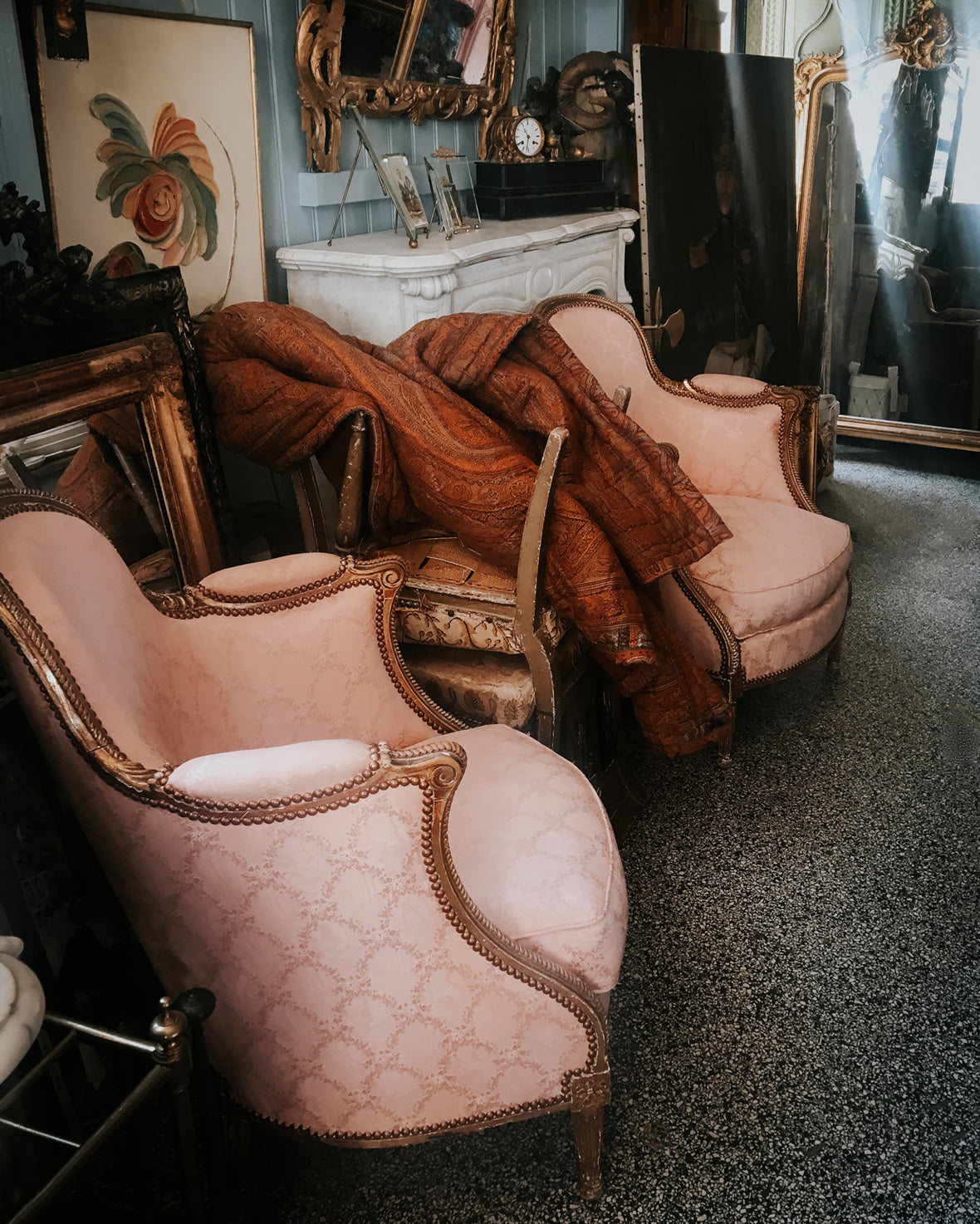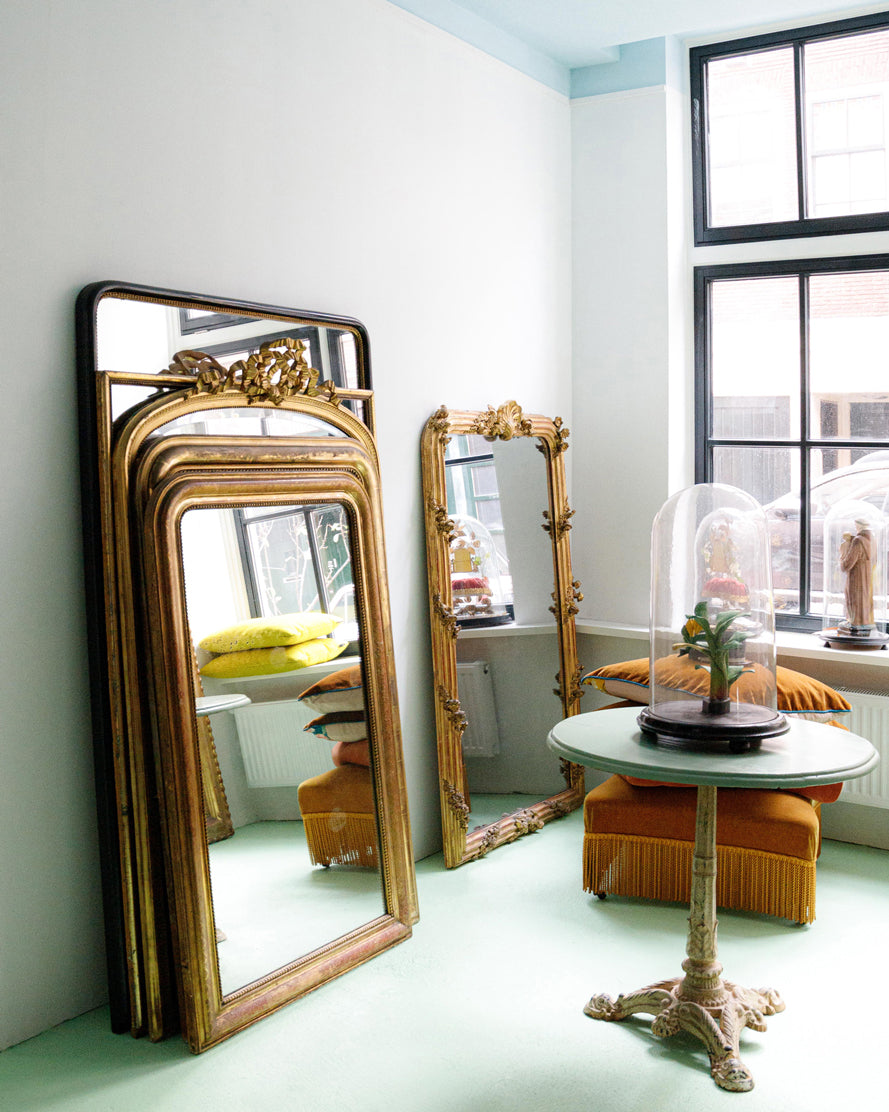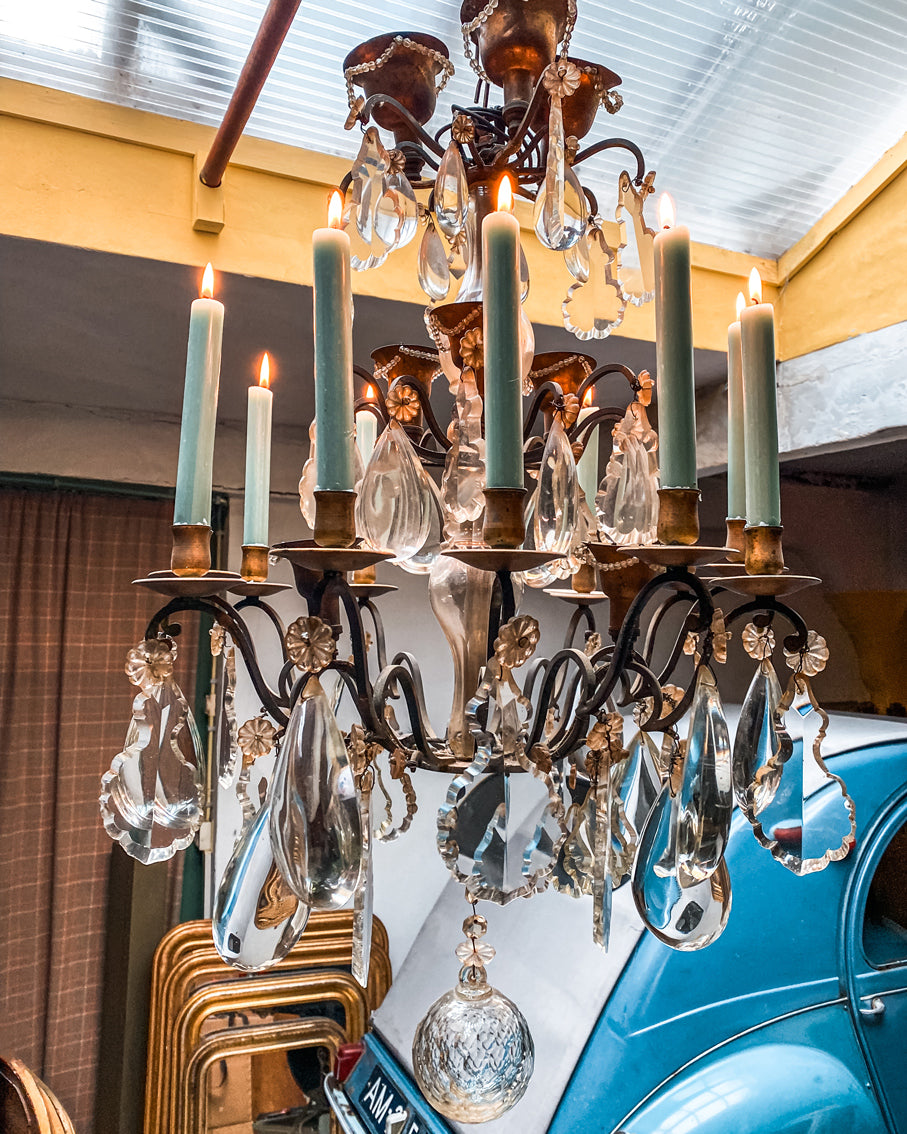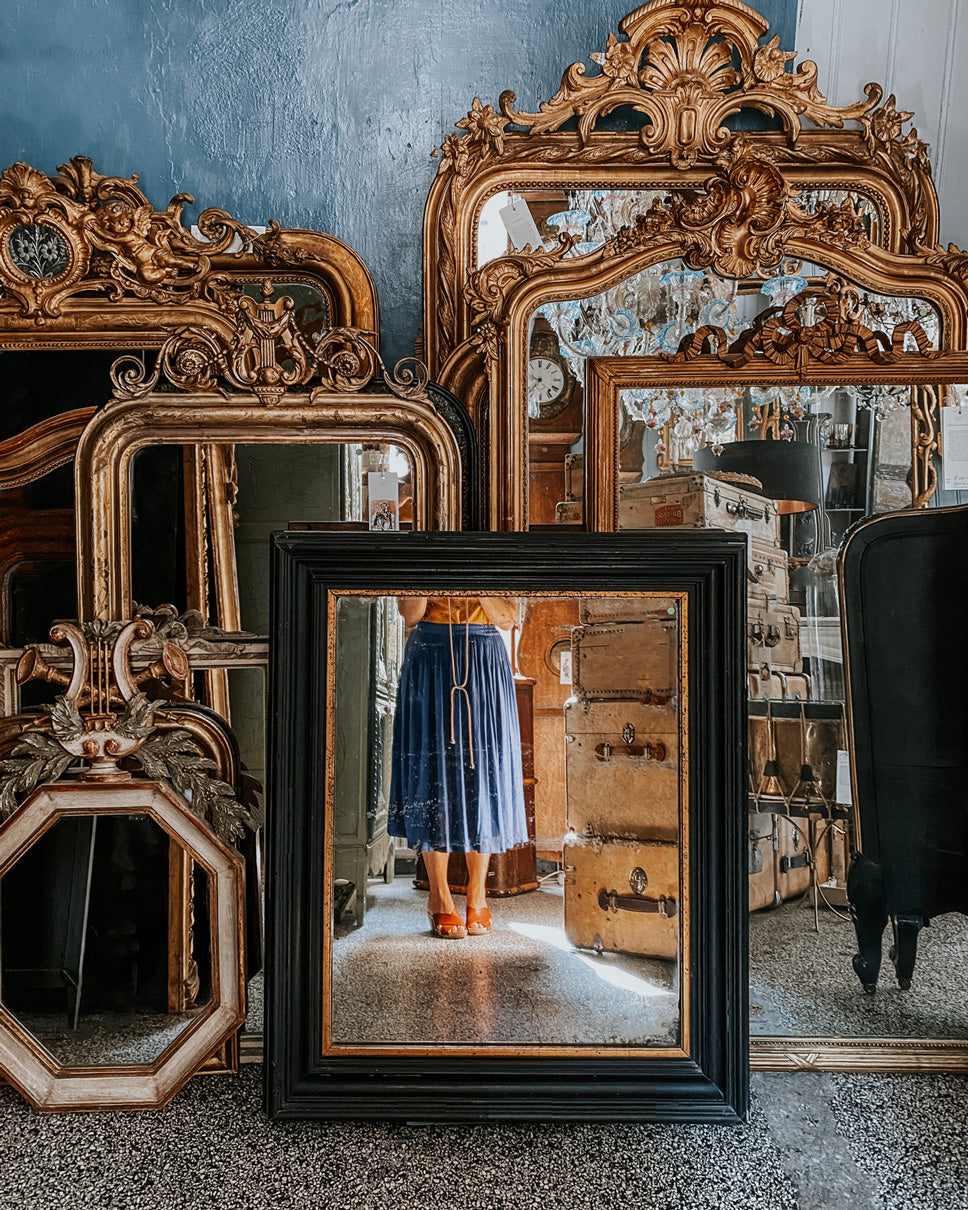The Mystique Behind Broken Mirrors: Unraveling the Superstition
Shards of Chic: The High Drama of Breaking a Mirror
Is it bad luck or just bad transport?
Let’s set the scene: you’ve just acquired a divine 19th-century French mirror—foxed glass, carved wood, utterly fabulous. It arrives, you unwrap it, your heart skips… and then crashes. Literally. The mirror’s broken! Panic sets in. Not just about the damage—but about the doom. Seven years of bad luck, they whisper. But is it really?
At Wildschut Antiques, we’ve handled hundreds of mirrors (some nearly as high-maintenance as a runway model), and yes, occasionally one meets a tragic end. But we’ve never let superstition upstage style. Still, the myth persists, and we couldn’t resist diving into this most glamorous of ghost stories.
Ancient Drama: When Rome invented the Curse
We can thank the ancient Romans—eternal city, eternal drama—for the seven-year sentence. They believed mirrors reflected not just your cheekbones but your soul. Breaking one? A cosmic faux-pas. And because they thought life reset itself every seven years, you’d just have to wait it out until the soul recovered from your clumsy mishandling.
(One wonders if they also banned Aperol for seven years. That would be the real tragedy.)
Spiritual Reflections: The Greeks and Ghosts in the Glass
Before the Romans, the Greeks saw water as a soulful mirror, a kind of low-res reflective therapy. Later, polished metal gave way to glass, and mirrors became not just status symbols but spiritual ones. By the Middle Ages, if someone died, all mirrors in the house were covered—not to be dramatic (though obviously they were), but to keep the spirit from getting trapped in the glass. Chic and chilling.
Not All Doom: Mirrors as Lucky Charms
Of course, not all reflections are ominous. In some traditions, mirrors attract love, fortune, and abundance. Think of them as the original vision boards—if your vision board came with an ornate gilt frame and a slight air of mystery.
Modern Remedies for the Supernaturally Anxious
So, you’ve broken a mirror. What now? Here’s what folklore suggests (because even in the 21st century, superstition comes with instructions):
- Toss salt over your left shoulder. Preferably Maldon, for aesthetic value.
- Bathe in saltwater. Think spa day with an existential twist.
- Spin counter-clockwise three times. Bonus points for doing it in Gucci.
- Throw the shards into a south-flowing stream. Good luck finding one in Amsterdam.
- Bury the pieces. Like a secret, or a bad haircut. Deep, deep underground.
- Or, you know… just clean it up carefully and move on.
Our Take? Glamour First, Superstition Second
We’re not about living in fear—unless it’s fear of beige interiors. Antique mirrors are moody, magnificent creatures with lives of their own. Sometimes they fall. Sometimes they break. Sometimes they reflect a little more than just your outfit. But mostly, they bring soul, softness, and a little sparkle to every space.
And as for the bad luck? We prefer to think of it as an opportunity—seven years to shake things up, swap some energy, and buy an even better mirror.









